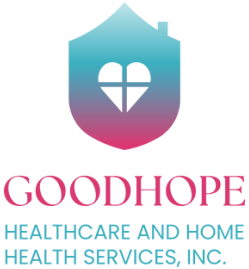October 16, 2025
By Kingsley Ebirim | October 16, 2025
As our loved ones age, their needs often change in ways that families may not anticipate. Balancing work, personal responsibilities, and caregiving can quickly become overwhelming, especially as physical, cognitive, or emotional challenges emerge. For many families, home care offers a compassionate and practical solution, providing professional support while allowing seniors to maintain comfort and independence in their own homes.
However, determining the right time to consider home care can be difficult. Families often hesitate, unsure whether their loved one truly needs outside help or if the challenges can still be managed at home. Recognizing the warning signs early can make all the difference, ensuring safety, stability, and peace of mind for everyone involved.
Explore six key signs that may indicate it’s time to consider a home care service. From declining physical health to caregiver stress, these indicators can help your family evaluate when professional assistance is beneficial for your loved one’s well-being.
1. Signs of Declining Physical Health
As individuals age, a decline in physical health becomes more noticeable, and it can manifest in various ways. Frequent falls or accidents often signal that someone might not be safe living alone without additional support. These incidents could be due to weakened muscles, poor balance, or decreased vision, all of which are common in the elderly.
Difficulty with mobility is another crucial sign, as it can indicate that your loved one struggles with daily tasks. Whether it's moving from room to room or getting in and out of a chair, these challenges can severely impact their quality of life. Moreover, chronic health conditions such as arthritis, diabetes, or heart disease often require consistent management that might be neglected if the individual lives alone.
Inconsistent medication management further exacerbates health issues for many seniors. Missing doses or taking incorrect amounts of medication can have dangerous repercussions for their health. Signs of malnutrition or weight loss also reflect a decline in physical health, indicating that they may not be eating properly, possibly due to a lack of ability or energy to prepare healthy meals.
2. Indicators of Cognitive Changes
Cognitive changes often develop subtly but can significantly impact daily life, requiring careful observation. Memory loss is one of the earliest signs, and it can range from forgetting small details to complete episodes of amnesia. This, coupled with confusion and disorientation, can make day-to-day activities challenging and unsafe for seniors.
Difficulty completing familiar tasks, such as cooking a meal or operating household appliances, often reflects deeper cognitive issues. Furthermore, poor judgment and decision-making, such as financial mismanagement or neglecting personal hygiene, can put them at risk. It's crucial for families to identify these changes early to provide necessary interventions and prevent potential harms.
Language and communication problems, such as struggling to find the right words or maintaining a conversation, are also indicators of cognitive decline. These challenges can make social interactions frustrating and may lead to isolation. Identifying these signs can help families decide if a home care service is needed to cater to the individual’s cognitive impairments effectively.
3. Signs of Emotional and Mental Struggles
The emotional and mental well-being of an aging individual is just as vital as their physical health, and changes in these areas can be indicative of deeper issues. Increased anxiety or depression may arise due to their declining health and limited independence, necessitating professional help. In many cases, a home care service can provide the emotional support and companionship needed to reduce feelings of loneliness and improve overall mental wellness.
Withdrawal from personal relationships, often stemming from embarrassment or frustration about their condition, can exacerbate their sense of isolation. Mood swings might also occur, influenced by the frustration of losing control over aspects of their lives. This emotional volatility can strain family relationships and create a tense living environment.
Loss of interest in hobbies and activities that once brought them joy is another red flag that should not be overlooked. It can indicate a deeper sense of hopelessness and lack of motivation. A decline in emotional responsiveness, such as not reacting emotionally in situations where it is appropriate, further stresses the need to evaluate their emotional and mental health status.
4. Challenges With Daily Living Activities
Everyday activities that once seemed effortless can become overwhelming burdens for older adults. Personal hygiene neglect is one of the most noticeable signs, often indicated by an unkempt appearance or a lack of clean clothing. This neglect can be due to physical limitations or simply forgetting these tasks as part of the cognitive decline.
Difficulty preparing meals or missing meals altogether can also signify that your loved one is struggling and could benefit from a home care service. The inability to prepare meals affects their nutritional intake, which is essential for maintaining overall health.
Trouble with transportation needs, such as driving or using public transportation, highlights their declining independence. It might lead to difficulties with running errands or attending doctor appointments. When compounded with the inability to manage shopping requirements, these challenges reveal their growing dependence on others for daily living.
5. Warning Signs for Safety Concerns
Safety in the home is a top priority, yet it often becomes an issue for seniors living independently. Wandering or getting lost, especially in familiar environments, signals rising concern for their safety. It's a common issue among those with cognitive decline, increasing the risk of harm outside the home.
Unsafe driving habits endanger both the individual and others on the road. This is exacerbated by forgetfulness, which might lead to incidents like forgetting to turn off appliances, posing fire risks in the home. Moreover, vulnerability to scams or exploitations becomes a significant threat as cognitive abilities decline, with seniors more likely to fall victim to these ploys.
Unsanitary living conditions, such as garbage accumulation and a lack of cleaning, indicate that the individual cannot manage household chores. This can worsen physical health due to the unhygienic environment and reflects the need for extra help in maintaining their living space.
6. Indicators of Family Caregiver Stress
Caring for an aging family member is undoubtedly stressful, impacting caregivers' physical and mental health. Symptoms such as exhaustion, burnout, and constant worrying contribute to physical and mental exhaustion. Overwhelming care demands might lead caregivers to neglect their responsibilities, impacting their personal and professional lives.
Limited time for social interactions can isolate caregivers from their friends and family, making the situation emotionally draining. It can lead to strained relationships and conflicts, highlighting the need for a balanced support system. Strained family relationships might develop as caregivers prioritize caregiving responsibilities over family time and personal activities.
According to seniorliving.org, about 70% of seniors will need long-term care at some point in their lives, either at home or in a facility. This statistic underscores the prevalence of this issue and the importance of recognizing caregiver fatigue as part of the decision-making process. Understanding the signs of caregiver stress can help families seek additional support and make informed decisions about integrating a home care service.
Evaluating the signs outlined above can guide you in making an informed decision about home care service for your family. By recognizing these signs early, you can ensure that your loved ones receive the appropriate level of care for their needs while maintaining a healthy balance in your family's life. Deciding on home care involves considering both the well-being of the senior and the overall dynamics and health of the family unit.
Caring for an aging family member doesn’t have to be overwhelming. Goodhope Healthcare and Home Health Services, Inc offers reliable, compassionate
home care service solutions that bring peace of mind to families and independence to seniors. Contact us today to learn how we can help your loved one thrive in the comfort of home.












